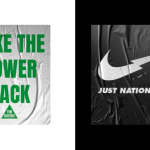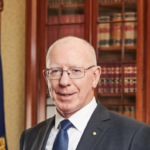‘Biggie’s’ Killer Suspended for Taking Meth at Stereosonic

Police are paid to uphold and enforce the law. In fact, NSW taxpayers forked out 3.2 billion dollars to fund the state’s police force last year alone. They are equipped with lethal weaponry and entrusted with ever-expanding powers.
Police in NSW have collectively been renamed the ‘NSW Police Force’, no longer the ‘NSW Police Service’ – and several recent incidents suggest that some officers are more intent on exerting force than serving the public.
Police swear to uphold the law and protect the public, and are forever reminding us of the dangers involved in using illegal drugs. But it appears that some don’t practice what they preach.
Three police officers, two males and a female, who were on-duty at the Stereosonic Music Festival in Perth have reportedly been stood down after testing positive to drugs the day after the festival.
An anonymous tip-off about their use of drugs led investigators to execute search warrants at their homes and take urine samples. One of the males tested positive to methamphetamines, while the other two tested positive for ecstasy.
Police Commissioner Karl O’Callaghan confirmed that ‘we had received some information about these officers.’
Two of the officers are believed to be attached to Midland Police Station, while the third is from Scarborough Police Station. One of them reportedly tried to make a run for it when approached at his house.
It has since emerged that the officer who tested positive to methamphetamines is the same man who faced a public backlash after shooting and killing beloved pet dog ‘Biggie’ in the middle of a public street last month, despite Biggie showing no signs of aggression. It is reported that illegal drugs were also found during the search of the officer’s home.
Commissioner O’Callaghan condemned the actions of the officers, saying:
‘There is potentially criminal offences involved. There people are police officers charged with upholding the law…They are carrying lethal force options and they need to be clean and it is my job to make sure they stay that way.
Officers make critical decisions under duress and they must not be affected by illicit substances or alcohol…This is for the safety of the community and their frontline partners.
He told the media that it was ‘99% likely’ the officers would be sacked – but they have presently been stood down pending the outcome of the investigation.
Only time will tell whether the officers will face drug charges.
Drug and Alcohol Abuse by Police
Despite police officers being sworn to uphold the law, many have tested positive for illegal drugs whilst on duty.
Since random drug and alcohol screening was introduced to the WA Police Force in 2011, 7 officers have tested positive for illegal drugs in their system including cannabis, MDMA, steroids and methamphetamines. A further 11 had blood alcohol concentrations of more than 0.02.
Police say that 6 out of the 7 who tested positive resigned from the force, while the seventh ‘received a Letter of Corrective Advice after it was accepted he may have unwittingly ingested the steroid in an exercise supplement.’
Drug use is also a problem in other states. In October this year, an investigation by the Herald Sun revealed that more Victoria Police officers [were being] caught using drugs than ever before.’
The article reported that although drug testing of officers is rare, 18 out of 100 that were ‘target tested’ in the 40 months to June 2014 were found to have illegal drugs in their system. A further 11 were caught with drugs in their possession or failed to account for drugs which they had seized.
And in 2012, all NSW police officers were forced to undergo mandatory drug testing after Sergeant Wes Bas attempted to interfere with his urine test results to disguise his use of methamphetamine.
According to reports, Mr Bas was on-duty at the Professional Standards Unit – the very branch which administers drug tests – when he attempted to switch his urine sample with a condom containing another person’s urine.
He was suspended from duty and charged with ‘interfering with a drug test.’
The Dangers of Police on Drugs
Police often warn the public about the dangers of drug use, but the potential for danger is amplified when drug users possess lethal weaponry and broad powers to deal with members of the public.
Unfortunately, police appear to be undeterred by the prospect of being caught as they are so unlikely to be tested, or to face criminal sanctions if detected. As Darron Brien from drug testing company Fit4Duty puts it, ‘getting tested once every 20 years is not much of an encouragement to modify behaviour’. He highlights the dangers of officers using drugs in a high risk environment, where they may need to make critical decisions at a moment’s notice.
The brazen use of drugs by police at music festivals – and the prevalence of drug use amongst officers generally – is just another indication that ‘police policing themselves’ is not working. It is another reason why a sufficiently resourced external body with real investigatory and disciplinary power needs to be established to act as a real deterrent against police misconduct.






